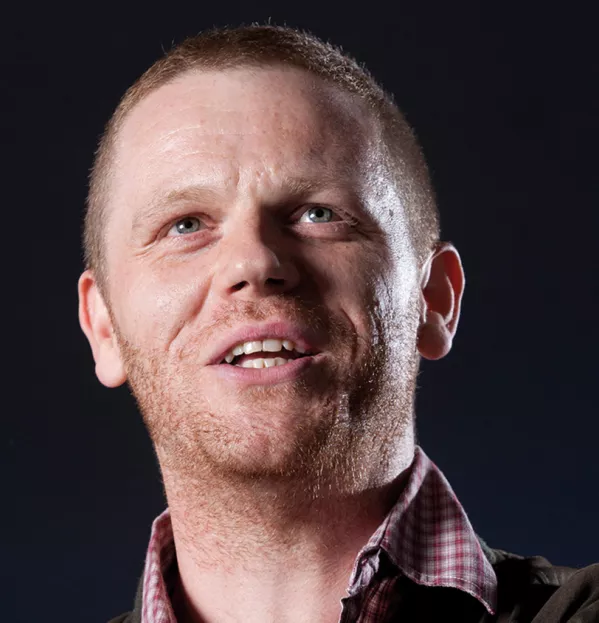What is there to learn about education in a day at the Edinburgh Festival Fringe? Plenty, if you go to see Scottish rapper Darren McGarvey - AKA Loki - even though he doesn’t mention his time at school explicitly. At least, he didn’t when I saw him perform. McGarvey (pictured), grew up in Pollok in Glasgow in the 1980s and 90s, and his views on poverty have been widely sought for years now. But interest rocketed in June after his searing performance on BBC One’s Question Time, as well as when Poverty Safari, his bestselling memoir and polemic, won the Orwell book prize.
Through rap, poetry and coruscating rhetoric, he presents a litany of symptoms of entrenched poverty - violence, suicide, simmering resentment against the world, snarling misogyny, substance abuse, a deep sense of inferiority next to more “educated” people - and rails against hypocrites and do-gooders who affect sympathy but seem incapable, or unwilling, to bring about real change.
It’s a timely message amid all the talk of closing the “poverty-related attainment gap” - an aspiration repeated so often in Scotland that at times it feels in danger of becoming an empty slogan. Especially so when many people fear that efforts to close the gap may be scuppered by a paucity of support staff in schools and shrinking budgets. And at a time when Scottish education continues to fixate on Higher and National 5 results in a way that suggests “wider achievement” is still not celebrated like it should be.
Engaging parents in school life
There are always some shows explicitly about education at the Fringe. This year, perhaps the outstanding example is Class, an Irish play about the tensions that build when a teacher meets the parents of Jayden, a nine-year-old boy who is struggling with reading and causing trouble at school. The teacher means well, but the parents grow annoyed by his confusing jargon and unwillingness to tell them in plain language about Jayden’s problems and disruptiveness. Before long, the veneer of mutual understanding is ripped off. The teacher’s empathy seems tainted by an arrogance that he knows best, and a failure to comprehend the fear and inadequacy that, for some families, has characterised their experience of school for generations.
It’s a nuanced play and leaves you with no simple message - although it chimes with the growing awareness that the genuine engagement of parents with their children’s learning is crucial if schools are to succeed.
Of course, many educators will want to switch off at the Fringe, in search of lighter, more escapist fare. But even when you least expect it, there may be a message there.
Peter Straker is in his seventies and has been performing the songs of Jacques Brel, that icon of French chanteurs, for decades. His career highlights include starring in the original production of groundbreaking musical Hair in 1968 and collaborating with his close friend Freddie Mercury.
Last Saturday, however, he faced the ignominy of a stage that he likened to a postage stamp and an audience that could have squeezed into a caravan. No matter, he told us with admirable chutzpah, he loved what he did. He was going to give us the sort of full-pelt performance that you’d expect had he been packing out Madison Square Garden - and indeed he did.
Teachers, too, whatever the challenges they face on a daily basis, are driven by a love of the job. And as they return to their classrooms over the next few weeks, that’s what will get them through all the inevitable ups and downs of the coming year.
@Henry_Hepburn
